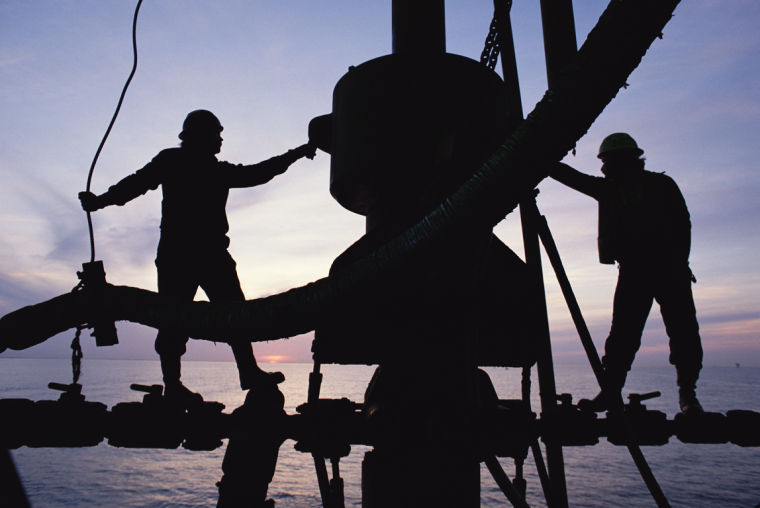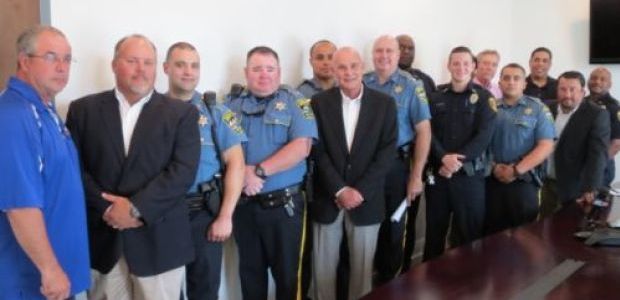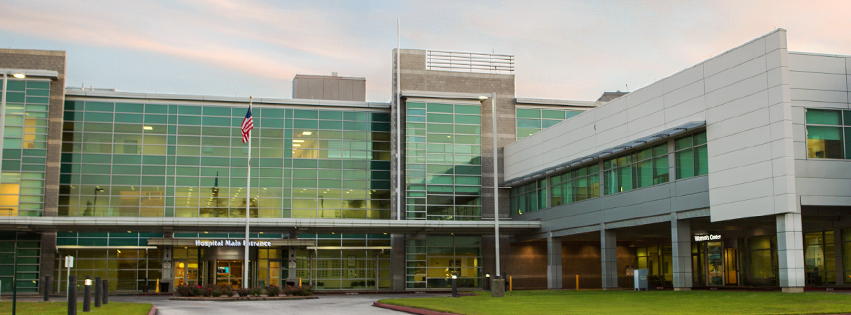
What would Louisiana look like without oil? Ask Mississippi.
July 22, 2014
Business newcomer says vests are just the beginning
July 22, 2014Amateur radio, or ham radio as it’s called on the inside, means a lot to those who are members of this relatively unknown club.
“We hide in plain view,” said ham radio aficionado Martin Wade. “There’s only one [set of ham call letters for you] in the world. Sometimes we’re so proud of them we even put them on our tombstone.”
But in the near future, ham radio could mean a lot to residents of Terrebonne and southern Lafourche parishes during times of emergency.
That’s because Wade serves as the broadcast committee chairman of the Bayou Regional Amateur Radio Society. The group is slated to bring public service radio – a resource that could prove invaluable during state of emergency times – to the Houma metro area as well as a portion of southern Lafourche parish.
Wade says the FCC granted the bayou region two amateur radio licenses in February to operate low-power FM signals. One station will be located in Galliano and the other will be located in Houma. According to the FCC, the antenna cannot exceed 100 feet in height and cannot transmit at a power greater than 100 watts, Wade says. The signals will broadcast roughly 10 square miles, according to Wade.
“We’ll be able to cover everything out to Bayou Cane with a clear signal and everything as a far south probably about to Chauvin without any problems. It’ll pretty much cover the Houma metropolitan area, and south Lafourche we’ll be able to cover Galliano, Golden Meadow, Cut Off and possibly southern Larose with a workable signal.”
The mission of the stations will be to provide community service programming in the event of a natural disaster such as a hurricane.
“We’re gonna use that to basically augment our emergency services and make sure local communications stay local. In other words, people can tune in and we will be working closely with the local offices of emergency management and that way we’ll have a voice so that during a hurricane or other storm locals can stay informed,” Wade said.
In the event of an evacuation or power loss, the stations will be operational with emergency power due to remote links that will allow the stations to continue broadcasting before, during and after storms.
Wade says the Galliano station is scheduled to launch Jan. 1, while the target date for the Houma station to launch is next summer. The call letters for the Galliano station will be KZYL 102.7 FM, and the call letters for the Houma station will be KYYL 93.9 FM. Each set of call letters concludes with the letters YL, paying homage to the roots of the club – also known as the Thibodaux Amateur Radio Club – which began in the 1920s with the call letters W5YL.
During non-emergency times, Wade says the stations will still serve the public on the airwaves.
“We’ll probably be broadcasting a lot of stuff of interest to the community. If there are any volunteer groups that wish to put on something, they’d be allowed to do so. Like during hurricane season, there are always forums. And that way we can broadcast this live. We’ll be offering our mics, basically as we call open mics, to groups that need to get the message out. We’re hoping to work hand in hand with anyone that wishes to put on anything. Programing will probably be an open format,” he said.
The stations will be run in a non-profit manner. They will not sell commercial space, so they will rely heavily on donations and volunteers.
If anyone is interested in donating, volunteering or becoming an amateur radio operator, the club encourages that person attend a monthly meeting, which is held on the first Monday of every month at 7 p.m. at the North Terrebonne Library. Preceding each meeting at 6 p.m. is testing for anyone wishing to acquire an amateur radio license.
“We’re gonna want to take volunteers in, and that way they can gain experience operating a small station like this and helping out on an intern basis. We want to give back to the community, and it’ll be a great place for the young people to pick up experience. I’ve seen how this works. I’ve seen how we have to do things such as in broadcasting you have a lot of little rules and regulations that gives good insight so someone that wishes to go into the broadcast industry has an idea that this is how this works so it will be a good place for a young person to gain their internship,” Wade said.
Knowledge is power. And even if the power goes out, the bayou region will be one step closer to taking some that power back in the event of a hurricane.






